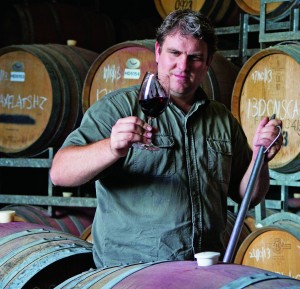Return to Work Regional Seminars
Return to Work Regional Seminars
South Australia’s new Return to Work Act will commence on 1 July 2015 heralding the biggest change to South Australia’s workers compensation arrangements in almost 30 years! Every employer must understand and comply with the new laws.
Regional Seminars are being hosted by SAWIA – Barossa (5 May), Riverland (6 May), Clare (7 May), McLaren Vale (12 May), Langhorne Creek (13 May), Adelaide (20 May) or Coonawarra (21 May).
To register Click Here.
NSW Workcover mentor program open for businesses
WorkCover NSW is calling for small and large businesses across the State to take part in its 2015 Mentor Program.
The WorkCover Mentor Program is a free program which involves large and medium-sized businesses pairing with a small business to help them identify new ways to address safety in their workplace.
Acting General Manager of WorkCover’s Work Health and Safety Division Peter Dunphy said the Mentor Program not only enabled small businesses to improve safety but also competitiveness and productivity.
“Finding time to focus on safety and make improvements can be a challenge for any small business,” Mr Dunphy said.
“The Mentor Program brings big and small businesses together to create new ways of tackling safety in the workplace.
“Mentors understand the work health and safety challenges mentees face on a daily basis and can suggest innovative solutions to safety, injury management and workers compensation issues.
“Together they participate in one-on-one discussions and onsite visits as well as free WorkCover advisory and educational sessions across a variety of safety and injury management topics.
“If you are a large or medium-sized business with an interest in proactive workplace safety, or a small business that wants to learn more about it, gain a competitive advantage and boost productivity, register for the 2015 WorkCover Mentor Program today.”
Mr Dunphy added that the Program, which generally runs for six to eight months, was flexible enough to fit around mentors and mentees’ work schedules.
“Since 2006, more than 520 businesses have participated in the Mentor Program with more than 90 per cent of mentees improving work health and safety as a result,” he said.
“Through the WorkCover Mentor Program, we aim to have more NSW workers return home safely at the end of the working day and fewer families experience the devastating impact of a workplace injury.”
To qualify as a mentee, a business must employ less than 20 full-time workers or equivalent.
Entries close Monday 9 February 2015.
WorkCover has produced a video featuring the stories of previous mentors and mentees. For further information on the WorkCover Mentor Program, visit www.workcover.nsw.gov.au/mentor or call WorkCover on 131050.
How to: write a stand-out job description

Source: Grapegrower & Winemaker, January 2015, Emilie Reynolds
THERE has been an article circulating the internet recently, which discussed the influx of ridiculous and over-complicated job titles. A lifeguard position had been advertised as a ‘wet leisure attendant’, while a vacant spot in a local school canteen called out for an ‘education centre nourishment consultant’. There had even been a case last year where Naked Wines advertised for the position of ‘customer happiness manager’, exactly what role had the company been filling? Well, it’s all right there in the title.
While it could be easy for employers to embellish job titles to make them sound more appealing and exciting, Jane McNeill, director of Hays in New South Wales, believed a simple approach would be best.
“The job title needs to be written in a way that would attract the interest of candidates in a language that is honest and easy to understand,” she said.
In short, practice saying the proposed title to yourself a few times. If you aren’t clear what it means one you’ve heard it, perhaps it’s time to reign in the creative license.
TAKE TIME TO PREPARE
Researching the job would allow an employer to advertise for the position, not an individual in the position.
“To write a good job description you need to sit down with the hiring manager and firstly establish what duties and responsibilities are involved in the job,” McNeill said. “You should describe both the duties or tasks, as well as the expected outcome or result that the incumbent is required to produce.”
Any training and development offered by the company should be also be assessed by employers and highlighted in the description.
“Candidates should be aware of career development opportunities and pathways that could be open to them,” said McNeill.
BEGIN WITH A DETAILED SUMMARY
McNeill said it was important to be detailed and include every task, no matter how small.
“Do not be tempted to gloss over tasks for fear that they may appear menial; it is important that the job description accurately reflects the reality of the job you are recruiting for and what tasks you need the incumbent to perform,” she said.
“Often job descriptions will include 30 or more tasks, some also include an indication of how much time should be dedicated to each aspect of the role or task.”
Would heavy-lifting be involved? Would they need to operate machinery or attend after hours events? Filling the profile with detail could make it more appealing to potential applicants and Nick Slape, Yalumba People Department manager, said the more interest in the role, the better. “It’s about reaching a wider potential market,” he said. “If someone responds to the advertisement, it gives us an opportunity to engage with that person and expose our brand and style to them.”
LIST THE KSA’S
Better known as knowledge, skills and abilities, this section should make up the bulk of your job description. KSA’s give potential applicants an idea of the level of experience, training and education you’re looking for.
McNeill said the more facts, clarity and context you could provide in the job description, the better.
“List the skills and competencies the incumbent must possess in order to successfully do the job and go into more detail about the position where appropriate,” she said.
Would the position require a university degree? Six years on-the-job experience? Fluency in French? Write the KSA’s carefully and truthfully to avoid disappointment on either side.
BE HONEST
Employers should be open about the position on offer to ensure potential applicants feel confident enough to apply. McNeill said employers should include information about the organisations culture so candidates could consider whether they were a ‘cultural fit’ with the vacant position, and if they would suit the team and the company’s way of operating.
“If the job description will be given to interested job applicants, ensure that the content sits in line with the company’s employment brand,” she said.
“Lastly, if the salary is not included a salary range should be specified as well as an outline of any other benefits.”
WHERE TO START: Draw out a good plan.
Get the interview process right – Part 3
Source: Grapegrower & Winemaker, November 2014, Stephanie Timotheou
How can a candidate ‘nail’ their interview?
Christian Campanella, Pernod Ricard Winemakers’ global HR Director: Interviews can be nerve-racking but it’s really important you use this as an opportunity to give your interviewer an insight into your personality. This will help your interviewer get an understanding of your character, drive, motivations and passion which are all incredibly important in the recruitment process. It’s also important to show an interest in the business or industry you’re looking to move into. This won’t be written in the job specification but interviewers are looking for you to go above and beyond what you have been provided with to showcase your ability and desire to fulfil the role and stand out from the crowd. You only have one opportunity to make a positive and lasting impression on your interviewer so make sure you put your best foot forward. If you don’t, someone else will.
Lisa Morris, Hays recruitment’s senior regional director for SA: Be prepared. Preparation is critical to job interview success, so it pays to do your homework. You should research the organisation concerned by visiting their website and consulting social media. This helps you gain a better understanding of their business and how your experience and skills match. It’s also important to look professional, act professionally and dress professionally for your job interview. As a rule, you should expect the environment to be conservative and corporate, to dress conservatively rather than casually or radically.
What mistakes should candidates try to avoid making during an interview?
Christian Campanella, Pernod Ricard Winemakers’ global HR Director: The ultimate no-no, in my opinion, is being unprepared. Not only do you come across like you have a lack of understanding about the company, but it also shows a real lack of motivation and passion for the role. Another thing to keep in mind is your appearance, always make sure you are appropriately dressed and don’t look unprofessional or unsuitable for the role. Finally, and this one might seem like a no brainer, but simple etiquette should also be considered. For example, make sure you are not late, don’t use unsuitable language and don’t insult colleagues, ex-employees or people in the industry.
Lisa Morris, Hays recruitment’s senior regional director for SA: We asked employers for their opinion on what deters them from a candidate in a job interview and the top 10 they came up with were: Poor verbal communication skills; not answering the question asked; not researching the company or role before the interview; leaving a mobile phone on; inability to provide solid examples of previous experience; exaggerating experience or skills; focusing on the negative rather than the positive in situations or experiences; inability to answer technical questions; arriving late; and not displaying an interest in the role.
Reaching the top: Predictors of women in the top roles in the wine industry
Jeremy Galbreath, from the Curtin University School of Business, has been researching the roles for women within the wine industry. She suggest that wineries are yet to reap the benefits of having women filling more senior positions.
The following is an excerpt. The full article can be sourced from Grapegrower & Winemaker December 2014 edition www.winebiz.com.au/gwm
To explore the research propositions, I studied women in CEO, winemaker, viticulturist, and marketer roles across all wine companies in Australia from 2007 to 2014. The findings suggest larger companies have less representation of women in top roles, the only exception being women in the winemaker role.
Companies with strong environmental sustainability credentials tend to have more women in top roles; namely, in CEO and marketer roles. Lastly, companies with high export orientations reduce the likelihood of women representation in top roles, particularly in CEO and winemaker roles. This is contrary to my prediction.
Much of what we know about women in the wine industry is based on anecdotal evidence and media reports. This empirical study, which examines all wine companies in Australia across an eight-year period, suggests that if women wish to reach the top roles, there appear to be better opportunities in smaller companies than larger ones and those that take environmental sustainability seriously. Alternatively, companies that are exporting high volumes appear to be less likely to have women in top roles.
While the results are modest in that only a few predictive variables were studied, they nonetheless expand our knowledge about women in the Australian wine industry. As noted in my own research, women possess highly valuable human capital, and this capital should be leveraged more effectively by Australian wine companies.
References
Gilbert, L.A. 2011. California women winemakers, their accomplishments, and their progress in a male-dominated field. Working paper, Santa Clara University, Santa Clara, California, August 2011.
Prestipino, D. 2012. Watershed moment for Margaret River winery. Available at http://www.news.com.au/national/watershed-moment-for-margaret-riverwinery/story-fndo4e3y-1226472874231
Ting, I. 2013. Women in wine are pushing open the cellar door. Available at http://www.theage.com.au/action/printArticle?id=4186716
Government assistance for employing people with disabilities

The 3rd of December was International Day of People with Disability. Senator the Hon Mitch Fifield, Assistant Minister for Social Services and Minister responsible for Disability Services, wrote to employers on 3 December about this date. He urged all employers to consider that the right person for their organisation may be a person with a disability.
The Government offers the following assistance for employing people with a disability:
- Funding workplace adjustment costs;
- Free, practical advice on removing employment barriers; and
- Assistance from Disability Employment Services (DES) to find employees, provide support in removing workplace barriers and provide on-the-job support.
The Government has produced a package of resources to mark International Day of People with Disability and to support Australian employers that employ people with a disability. These resources are available on the JobAccess website, at www.jobaccess.gova.au.
Included on the site are: case studies, videos, information about recruitment and retention, removing workplace barriers and much more.
JobAccess can be contacted at any time for advice or support on 1800 464 800.
Fair Work Ombudsman’s presence helped ensure ‘level playing field’ for Hunter Valley grape harvest
Source: Fair Work Ombudsman, http://www.fairwork.gov.au/
Employers say scrutiny of wages and conditions for seasonal workers in the Hunter Valley last summer kept some rogue labour-hire contractors out of the NSW wine-producing region.
The Fair Work Ombudsman flagged late last year that it would be active in the Hunter Valley as part of its three-year national Harvest Trail project.
In mid-November, with the assistance of the Hunter Valley Wine Industry Association, Fair Work inspectors addressed employers and labour-hire contractors at an information session in Pokolbin in the heart of the region.
This was followed-up in December by visits to eight youth hostels and random site visits in January and February to 16 vineyards and six grape picking labour-hire contractors around Cessnock, Muswellbrook and Singleton.
Some local employers subsequently told the Fair Work Ombudsman its presence “stopped some dodgy contractors from coming to the area”.
“They say the combination of our media and education activity, along with the field visits, kept non-compliant operators away and created a far more level playing field for local operators,” Fair Work Ombudsman Natalie James revealed today.
The Harvest Trail program is in response to persistent complaints and concerns about the horticulture sector’s compliance with federal workplace laws.
Fruit and vegetable growers and labour-hire contractors around Australia are being asked to open their books to show seasonal workers are being paid their correct wages.
“The horticulture sector relies heavily on labour from unskilled workers, temporary workers and employees from a non-English speaking background who may not be fully aware of their workplace rights,” Ms James says.
“It is important that employers and labour-hire contractors understand their workplace obligations to this vulnerable group of employees.”
A number of vineyards in the Hunter Valley use the services of contractors to provide pickers and other seasonal workers, rather than employing them directly.
A key focus of this activity was checking that employers were meeting requirements of the Wine Industry Award 2010 and the Fair Work Act 2009.
Of the 500-strong workforce engaged by the 22 businesses audited during the harvest period, more than 400 were overseas workers, some under the age of 25.
Many were on 417 working holiday visas from Hong Kong, Taiwan, Thailand, France and Germany and working to support an application for a second-year visa.
As part of their inquiries, Fair Work inspectors discovered four employers had collectively underpaid 68 employees a total of $14,120.
Half of the underpaid employees were overseas visa-holders, including about a dozen under the age of 21.
The bulk of the underpayments related to one business, which was found to have short-changed 51 of its workers just over $11,000.
Contravention Letters were issued to three businesses.
The most common issue was underpayment of penalty rates for weekend and public holiday work.
Some workers also had money unlawfully deducted from their wages.
The Fair Work Ombudsman discovered money being deducted for the cost of pruning shears.
Under the Fair Work Act, an employer can only deduct money from an employee’s pay if the employee agrees in writing and the deduction is principally for the employee’s benefit – or if it is authorised by a Court, the Fair Work Commission or an award or agreement.
Other issues identified included employers not keeping accurate records, not maintaining individual flexibility agreements, part-time agreements not being in place for part-time workers, and the Fair Work Information Statement not being provided to new employees.
As a result of its findings, the Fair Work Ombudsman will again return to the region in January, 2015.
Ms James says the findings highlight the importance of employers seeking correct advice about their obligations under workplace laws.
“A lack of awareness of workplace laws can easily result in an inadvertent underpayment of wages or workers’ rights being compromised, as has occurred here,” she sai
“We have a range of tools and resources on our website to assist employers to understand and comply with workplace laws, but they should check with us if they are unsure about their obligations or have any hesitation about what is considered lawful.”
Ms James says that while it was disappointing to find a number of underpayments, it was pleasing the employers agreed to rectify the mistakes and accepted assistance from Fair Work inspectors to put processes in place to ensure ongoing compliance.
Any employer or employee seeking further information about workplace laws is encouraged to get in touch with the Fair Work Ombudsman via the website www.fairwork.gov.au or by calling the Fair Work Infoline on 13 13 94.
A free interpreter service is available on 13 14 50 and information on the website is translated into 27 languages atwww.fairwork.gov.au/languages.
Follow Fair Work Ombudsman Natalie James on Twitter @NatJamesFWO, the Fair Work Ombudsman @fairwork_gov_au or find us on Facebook www.facebook.com/fairwork.gov.au ![]() .
.
Media inquiries:
Tom McPherson, Media Adviser
Mobile: ![]() 0439 835 855
0439 835 855
tom.mcpherson@fwo.gov.au
Restart Wage Subsidy may apply when hiring mature aged workers
Employers that provide jobs to people 50 years of age or older, could be eligible for financial assistance that can be used on anything they need to expand their business – from reskilling staff to investing in new equipment.
The Restart Wage Subsidy provides an incentive of up to $10,000 (GST inclusive) to employers if they hire and retain a full-time mature age job seeker aged 50 years or older who has been unemployed and receiving income support for 6 months or more.
The Restart Wage Subsidy can be claimed on a pro rata basis if hiring mature age workers part-time, for at least 15 hours a week.
Visit the Experience Pays website for more information about Restart and the benefits of employing mature age workers.
Love what you do, love where you do it
Source: Grapegrower & Winemaker, December 2014, Stephanie Timotheou
Andrew Jericho, Maxwell Wines, South Australia
ANDREW Jericho works as a winemaker for Maxwell Wines in McLaren Vale and has been employed in the region since leaving university in 2003.
The things he loves most about living and working in McLaren Vale include the close proximity to beaches and local markets, the quality food on offer and having so many wineries scattered throughout the region.
“With Adelaide being only 40 minutes away, it’s easy to love living in the area,” he said. “McLaren Vale has so many things going for it. The climate is ideal for making Shiraz, Grenache and Cabernet Sauvignon, so access to great parcels of reds is a real strength of making wine in the region.”
Jericho has also worked as a consultant in Shanxi Provence, China, which he says is different in many ways. “It really makes me appreciate how good things are here in McLaren Vale, particularly when growing grapes,” he said. “In Shanxi the vines have to be buried in winter to prevent them from freezing, so the vines are very close to the ground.”
He says there is also a high level of leaf roll virus and high growing season rainfall in China, so the vines are more vulnerable to downy mildew and botrytis. “It was a steep learning curve for me to cope with these things and with intensive sorting, the resulting wines can be very good.”
The variation throughout the region also creates interesting differences and complex wines and Jericho says even within the vineyards around the Maxwell winery, there is a change in geological formations, so “getting an understanding of the vineyards gives great tools come blending time”.
Look out for more ‘Love what you do’ articles in upcoming Winejobs Knowledge Centre articles or visit www.winebiz.com.au/gwm for the full article.
Get the interview process right – Part 2
Tips to make sure you invest in the right candidate for your business
Source: Grapegrower & Winemaker, November 2014, Stephanie Timotheou
What does a candidate’s body language tell you?
Christian Campanella (CC), Pernod Ricard Winemakers’ global HR Director: Body language is an important part of the interview. It can say a lot about you. Used with the right language, you can make your message more powerful if it is combined with non-verbal communication. It is also important for the interviewer to remember that body language needs to be put into context. For example, someone from a Spanish background might act differently to someone from a French background, so this needs to be considered when evaluating the interview. Body language is most effective when you are being a true representation of yourself and push yourself in the right measure – there is no need to be an actor in an interview.
Lisa Morris (LM), Hays recruitment’s senior regional director for SA: It can indicate if they are nervous or confident.
How do you assess a candidate?
CC: There isn’t a ‘one size fits all’ solution. Having said that, there are internal procedures that Pernod Ricard Winemakers will go through to recruit for prospective candidates and ensure we bring the right people into the business. As part of this process, we will conduct interviews, personality testing, psychometric testing and sometimes add a creativity component. For graduates, we also hold an assessment day so they are able to gain an understanding of the culture. It’s really important we find someone with the right cultural fit for our business, someone who supports our ethos and is genuinely passionate about the role they’re applying for.
LM: Through behavioural interview questions. These often being with, ‘tell me about a time when…’ or ‘describe an occasion when…’. Employers ask behavioural questions to establish various core competencies relevant to the role such as teamwork, creativity and innovation, decision-making ability, business awareness or conflict resolution.
Look out for more interview tips in upcoming Winejobs Knowledge Centre articles or visit www.winebiz.com.au/gwm for the full article.




